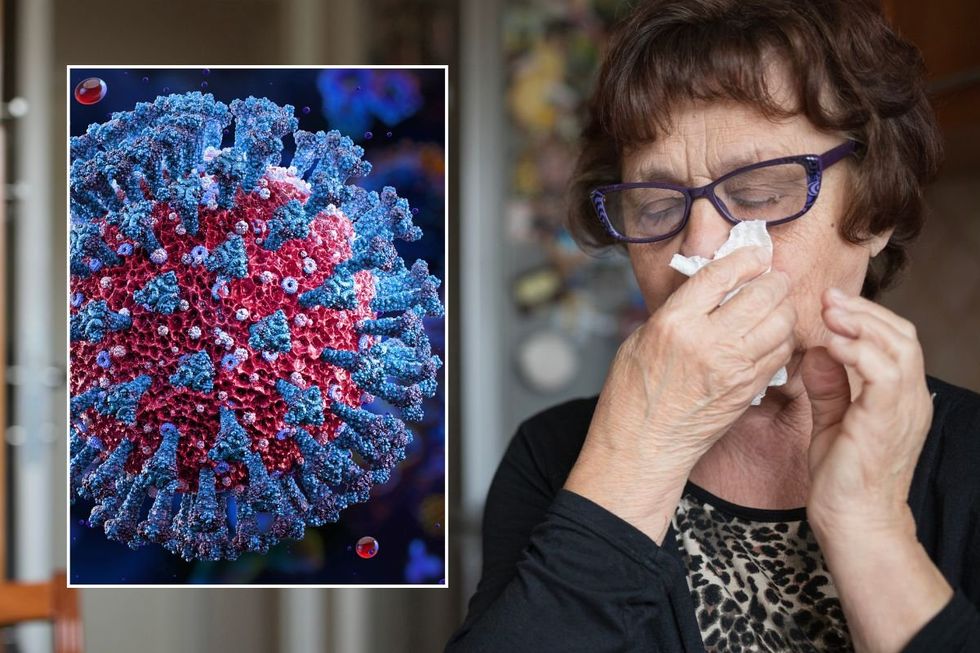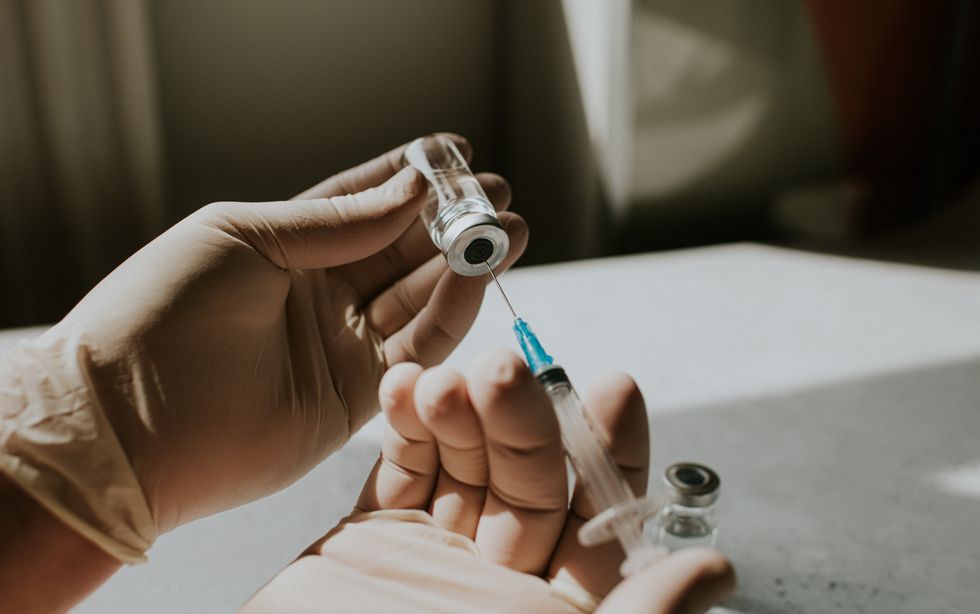Covid warning as new variant takes hold in Britain - experts urge immediate medical care for key symptoms

The warning comes as Britain prepares to see more viruses in circulation in the winter months
Don't Miss
Most Read
Latest
Britons have been issued a health warning after the XFG variant became the dominant strain across Britain, with both coronavirus and flu infections climbing steadily.
Health officials report that Covid-19 positivity has jumped from 7.6 per cent to 8.4 per cent in just one week.
Hospital admissions are also rising, with rates increasing from two to 2.73 per 100,000 people.
The UK Health Security Agency notes that infections have been increasing since late September, when temperatures began to fall across the country.
TRENDING
Stories
Videos
Your Say

Eligible groups have been urged to come forward for their winter jabs
|GETTY
These increases have prompted health authorities to issue urgent guidance for those experiencing symptoms, with people advised to seek immediate medical attention if certain warning signs develop.
Those who contract Covid may notice various symptoms ranging from mild to more severe.
The most common include a persistent cough, high temperature or chills, and feeling tired or achy throughout your body.
Many people also report a blocked or runny nose, sore throat, and headaches. In some cases, digestive issues like feeling sick, vomiting, or diarrhoea can occur. Loss of appetite is another frequent complaint.
But anyone concerned about symptoms in themself or their child has been urged to seek help.
The NHS specifically advises calling 111 or booking an urgent GP appointment in several situations.
For children, immediate attention is needed if a baby under three months develops a temperature of 38C or higher, or if a child aged three to six months has a fever of 39C or above.
Adults and children should also seek urgent care if their high temperature persists for five days or more despite paracetamol, if they develop a rash, lose their appetite, feel weak, or if their Covid symptoms are getting worse rather than improving.
Health experts are now calling on eligible groups to come forward for their winter jabs before these viruses spread further.
Dr Jamie Lopez Bernal, a consultant epidemiologist at UKHSA, stressed that getting vaccinated offers the strongest defence against flu, Covid-19 and RSV.
LATEST DEVELOPMENTS
"Flu and COVID-19 levels are starting to slowly increase," Dr Lopez Bernal warned.
"While this is to be expected at this time of year, now is the time for people to come forward for their winter vaccines if they're eligible, before we start to see more of these viruses in circulation in the winter months."
Those feeling unwell should try to avoid contact with vulnerable people and are urged to wear a face covering when leaving the house, along with regular hand washing and proper tissue disposal.

Flu vaccines significantly reduce the chance of needing a hospital visit
|GETTY
The virus can affect your senses too - you might notice changes to your smell or taste. Breathing difficulties and shortness of breath can also occur.
While most people find their symptoms improve within a few weeks without treatment, it's important to monitor how you're feeling and seek help if symptoms worsen.
Our Standards: The GB News Editorial Charter











